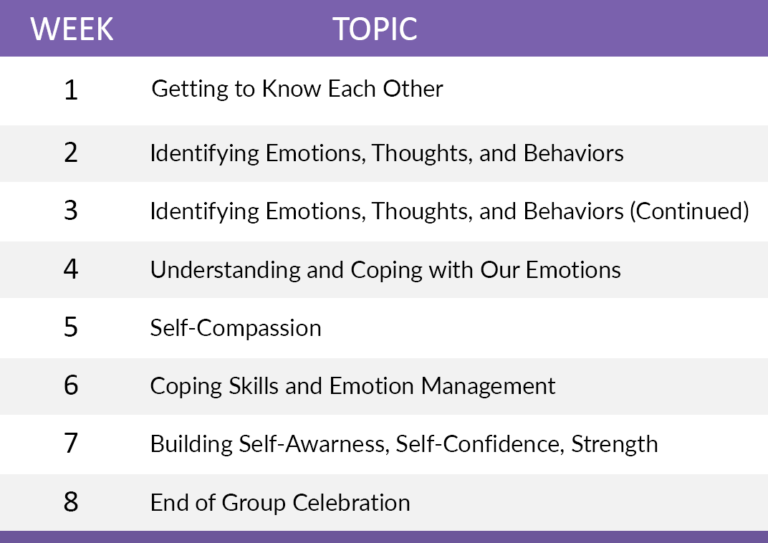Community-Based Resilience Training for Adolescents:
A training program to encourage emotional resilience building.
Adolescent mental health is a significant area of unmet need in the current health care system, especially in low-income and minority populations. Enhancing emotional resilience, which is the ability to adapt to difficult emotional situations, is key to preventing psychiatric illness, largely because it functions as a protective factor and promotes positive health outcomes, such as good physical health, supportive peer relationships, and social-emotional adjustment. Children living in Chelsea, Massachusetts, may be at risk for mental health challenges due to high rates of exposure to environmental stressors, including community violence, substance use, and racism.

Clauss JA, Bhiku K, Burke A, Pimentel-Diaz Y, DeTore NR, Zapetis S, Zvonar V, Kritikos K, Canenguez K, Cather C & Holt DJ. (2022). Development of a transdiagnostic, resilience-focused intervention for at-risk adolescents. Journal of Mental Health, 32(3), 592–601.
AIMS
We developed the Resilience Training Program to encourage emotional resilience building within the Chelsea community. Our primary aims are to evaluate the program’s: 1) acceptability and tolerability through attendance and satisfaction rates and 2) efficacy through parent and child report measures, which are administered before and after the program.
Our secondary aim is to evaluate whether the Resilience Training Program reduces mental health symptoms and increases emotional resilience skills.
METHODS
Latinx youth between the ages of 11 and 14 with low-level mental health symptoms, such as mild depression, anxiety, or challenges following rules, are recruited from MGH Chelsea Adolescent and Pediatric Practice and enrolled alongside their parents/caregivers. The study has been designed as randomized controlled trial, with participants randomly assigned to one of two groups:
Health Education Group
Parent participants will be invited to attend one, 75-minute group session. They will learn general healthy lifestyle tips regarding stress management, mindfulness, parenting, and the benefits of physical activity.
Resilience Training Group
Adolescent participants will be invited to attend eight, 75-minute group sessions that occur weekly. This group involves combined aspects of dialectical behavior therapy, cognitive behavioral therapy, and self-compassion-based therapies, which are evidence-based therapies that have shown to be helpful with adolescents. Parent participants will be required to attend two parent sessions and one joint session with their children, where they will learn the same concepts so that they can reinforce them at home.
Resilience Training Group Topics

RESULTS
This pilot study showed great success in a brief, group-based, resilience-focused program delivered to at-risk adolescents. Both parents and adolescents were generally satisfied with the feasibility and usefulness of the intervention. Adolescents strongly agreed that the program helped them to better manage their emotions and communicate with others. Parents agreed that the program was helpful in teaching them about the importance of emotions in their adolescents, and they would recommend the program to others.
During the COVID-19 pandemic, the intervention was presented virtually and received the same positive response as the in-person intervention, but additional research should explore the differences between the in-person and virtual interventions.
COE PROJECT STAFF

Daphne Holt, MD, PhD
PRINCIPAL INVESTIGATOR

Corinne Cather, PhD
CO-INVESTIGATOR

Katherine Kritikos, MPH
PROGRAM MANAGER

Ylira Pimentel-Diaz, LICSW
CLINICAL INTERVENTIONIST

Kamila Bhiku, BS
CLINICAL RESEARCH COORDINATOR

Cheryl Foo, PhD
CLINICAL PSYCHOLOGIST
Additional Collaborators
Anne Burke, PhD; Francisco Palacios Bustamante, MD; Katia Canenguez, PhD; Jacqueline Clauss, MD, PhD; Nicole DeTore, PhD; Leah Namey, MPH; Maria Luisa Victoria, PhD; Vanya Zvonar, BA.
Funding
Funding for this project was provided by the American Academy of Child and Adolescent Psychiatry and the MGH COE/Massachusetts Department of Mental Health.